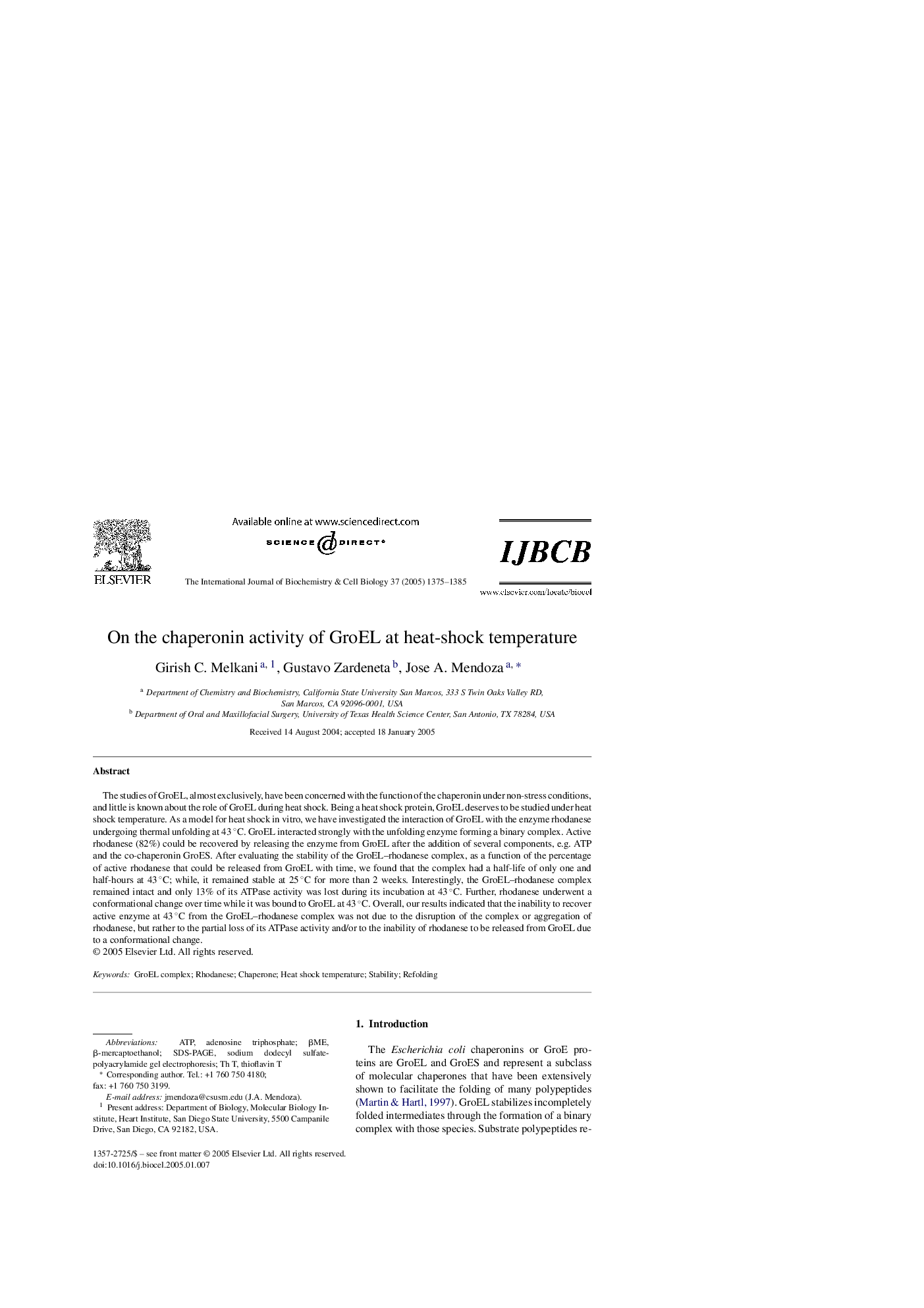| کد مقاله | کد نشریه | سال انتشار | مقاله انگلیسی | نسخه تمام متن |
|---|---|---|---|---|
| 9889990 | 1539996 | 2005 | 11 صفحه PDF | دانلود رایگان |
عنوان انگلیسی مقاله ISI
On the chaperonin activity of GroEL at heat-shock temperature
دانلود مقاله + سفارش ترجمه
دانلود مقاله ISI انگلیسی
رایگان برای ایرانیان
کلمات کلیدی
ChaperoneβMEβ-mercaptoethanol - β-merkaptoethanolAdenosine Triphosphate - آدنوزین تری فسفاتATP - آدنوزین تری فسفات یا ATPsodium dodecyl sulfate-polyacrylamide gel electrophoresis - الکتروفورز ژل دوده سولفات سدیم پلی آکریل آمیدSDS-PAGE - الکتروفورز ژل پلی آکریل آمیدRefolding - بازپرداختThioflavin T - تیوفلاوین TStability - ثباتrhodanese - رودانسی
موضوعات مرتبط
علوم زیستی و بیوفناوری
بیوشیمی، ژنتیک و زیست شناسی مولکولی
زیست شیمی
پیش نمایش صفحه اول مقاله

چکیده انگلیسی
The studies of GroEL, almost exclusively, have been concerned with the function of the chaperonin under non-stress conditions, and little is known about the role of GroEL during heat shock. Being a heat shock protein, GroEL deserves to be studied under heat shock temperature. As a model for heat shock in vitro, we have investigated the interaction of GroEL with the enzyme rhodanese undergoing thermal unfolding at 43 °C. GroEL interacted strongly with the unfolding enzyme forming a binary complex. Active rhodanese (82%) could be recovered by releasing the enzyme from GroEL after the addition of several components, e.g. ATP and the co-chaperonin GroES. After evaluating the stability of the GroEL-rhodanese complex, as a function of the percentage of active rhodanese that could be released from GroEL with time, we found that the complex had a half-life of only one and half-hours at 43 °C; while, it remained stable at 25 °C for more than 2 weeks. Interestingly, the GroEL-rhodanese complex remained intact and only 13% of its ATPase activity was lost during its incubation at 43 °C. Further, rhodanese underwent a conformational change over time while it was bound to GroEL at 43 °C. Overall, our results indicated that the inability to recover active enzyme at 43 °C from the GroEL-rhodanese complex was not due to the disruption of the complex or aggregation of rhodanese, but rather to the partial loss of its ATPase activity and/or to the inability of rhodanese to be released from GroEL due to a conformational change.
ناشر
Database: Elsevier - ScienceDirect (ساینس دایرکت)
Journal: The International Journal of Biochemistry & Cell Biology - Volume 37, Issue 7, July 2005, Pages 1375-1385
Journal: The International Journal of Biochemistry & Cell Biology - Volume 37, Issue 7, July 2005, Pages 1375-1385
نویسندگان
Girish C. Melkani, Gustavo Zardeneta, Jose A. Mendoza,